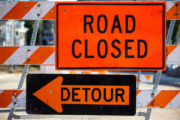When the pandemic and lockdowns hit the U.S., many Americans made comfort food a staple of their quarantine diet. Sales of ultra-processed foods, snacks and sweets soared in the spring and continue to surge today. “We’re all under stress and looking for ways to cope. For some of us, that means eating comfort foods,” says Dr. Rachel Franklin, vice chair and medical director in the department of family and preventive medicine at the University of Oklahoma College of Medicine.
But if you’ve been eating a steady diet of comfort foods for months now — whether it’s ultra-processed packaged food or meals made from scratch — your body may be suffering some unhealthy side effects.
[See: The 10 Best Diets for Healthy Eating.]
What Is Comfort Food?
Comfort food in a quarantine diet can be anything that consoles you. It might remind you of a special person, evoke feelings of being pampered or loved, or temporarily make you feel good physically.
“Several different ‘comfort foods’ have been shown to release pleasure transmitters in the brain, much like recreational drugs. Dopamine, for example, is released by alcohol as well as sugar and caffeine. Endocannabinoids are released by cannabis, but by processed fats as well. Opiates are released by opium, but also by gluten, dairy and excessive salt,” says Joan Ifland, a nutrition researcher and processed food addiction counselor.
Foods (or drinks) people think of as comforting might be:
— Fatty and rich, like meatballs and marina sauce, macaroni and cheese or creamy desserts (tiramisu, ice cream).
— Carbohydrate-heavy, like mashed potatoes or pizza.
— Fried, like chicken nuggets, French fries or chicken fried steak.
— Sweet, like soda, milkshakes, hot cocoa, donuts, apple pie, chocolate cake or chocolate chip cookies.
— Salty, like pretzels, crackers, potato chips or canned soups.
— Hearty and savory, like beef stew or shepherd’s pie.
Often, comfort foods fit into several of those categories.
What’s Wrong With Comfort Food?
Comfort food is typically loaded with unhealthy ingredients. These can include:
— Saturated fat. Consuming too much saturated fat — from meat, full-fat dairy products, fried foods or baked goods — can increase your LDL bad cholesterol levels, which increases your risk for cardiovascular disease. Fat also contains twice the calories of carbohydrates, so eating too much fat can lead to weight gain.
— Sodium. Eating foods high in salt — not just chips but also cheese or bottled sauces — can cause water retention, weight gain and (in some people) high blood pressure.
— Added sugar. Consuming sugar that’s added to food or drinks (as opposed to naturally occurring sugar in fruit) can cause your blood sugar levels to spike. Eating too much added sugar — in sweets and in salad dressings, sauces and even dried fruit — is associated with an increased risk for developing Type 2 diabetes, weight gain and chronic inflammation (which is associated with other chronic diseases).
— Refined grains. Grains that have been stripped of the bran (the fibrous outer shell) and germ (nutrient-rich core) are called refined grains. These grains — such as white bread, pizza dough and baked goods — are digested quickly and can cause blood sugar to spike. They can also promote chronic inflammation and weight gain.
— Too many calories. Consuming more calories than you need can lead to weight gain. Obesity is associated with an increased risk for heart disease, joint pain, cancer and hormone imbalance and depression.
[See: 15 Best Weight-Loss Diets at a Glance.]
Is Your Quarantine Diet Hurting You?
The fastest way to know if a quarantine diet is affecting your health is to step on a scale. A June 2020 poll of 2,000 Americans, commissioned by Nutrisystem, found that 76% of respondents had gained as much as 16 pounds since mid-March. “For a person who’s otherwise healthy, gaining 5 to 10 pounds is frustrating but not dangerous. However, for someone who struggles with chronic health, such as high blood pressure or Type 2 diabetes, that same 5 or 10 pounds may represent a potentially serious change in health status that can land them in the hospital,” Franklin says.
In addition to weight gain, signs that your quarantine diet is affecting your health include:
— Heartburn. “In a comfort food diet,” Franklin says, “we often eat late at night because it helps us relax. But that can increase stomach acid, and when we lie down at night, the stomach acid can reflux,” Franklin points out. You may also experience heartburn if you’ve gained weight that’s putting pressure on your stomach.
— Sleep disturbances. If you aren’t sleeping well, it could be due to heartburn or weight gain that’s enlarged your neck and triggered sleep apnea (pauses in breathing during sleep).
— Constipation. Starchy, sugary, processed foods can lead to changes in bowel habits. So can a diet that’s low in fiber.
— Increased blood pressure. “An increase in blood pressure can be an indicator of a thousand things, among them is eating too much salt or gaining weight,” Franklin says. She advises calling your doctor if you detect a 10 point increase in either the top or bottom number of your blood pressure measurement, or if your previously controlled blood pressure rises above 140/90.
— Fatigue. You may be feel sluggish if you’re not giving your body the right nutrients or if you’re experiencing sugar highs that lead to lows in between meals.
Changing the Menu
Don’t beat yourself up if you’ve been eating a quarantine diet for months. “It is not unusual or uncommon to struggle with food right now,” says Alicia Romano, a clinical registered dietitian at the Frances Stern Nutrition Center at Tufts Medical Center. “I encourage all to be patient with themselves through this time.”
Romano recommends a gradual shift toward a healthier eating pattern rich in fiber, vitamins and minerals but low in added sugar and highly processed foods.
A Mediterranean-style diet fits the bill, featuring lots of:
— Fruits, such as strawberries or blueberries.
— Vegetables, such as dark, leafy greens, carrots, peppers or tomatoes.
— Whole grains, such as quinoa or whole wheat.
— Nuts and seeds, such as almonds or sunflower seeds.
— Legumes, such as black or kidney beans.
— Lean proteins, such as fish or poultry.
[See: 10 Cheap Plant-Based Meals.]
Making the Change
Romano offers these tips to ease off your quarantine diet:
— Plan your meals. Write out meal ideas, shop for food and prep ingredients in advance. “The more we can be prepared, the more likely we can make healthful decisions during the week,” Romano says.
— Make healthy foods available. Keep nutritious foods handy for easy preparation, including fruits and vegetables, canned beans, steamable whole grains, rolled oats, unsweetened low fat yogurt, nuts and seeds.
— Add structure to your day. Adopt a schedule of meals and snacks to ensure you are nourishing yourself properly throughout the day.
— Start with one goal. “Make it a goal to incorporate nutritious food at most of your meals — maybe a piece of fruit at breakfast or with your snack, perhaps a vegetable at lunch or dinner, or maybe swap out refined grains for whole grains at most meals,” Romano suggests.
— Stay hydrated. Water plays a key role in digestion, especially as you add fiber to your diet. “Keep a large glass or bottle of water by you at all times,” Romano advises. “Take sips throughout the day and refill it at least three times during the day.”
— Limit distractions while eating. Distractions (such as watching TV) make it easier to miss the body’s signals that you’ve you had enough to eat.
— Make less room on the plate for comfort foods. “If mashed potatoes are something you love, perhaps enjoy them as a side dish — let’s say about a quarter of your plate — next to a large portion of non-starchy veggies and a lean protein,” Romano says.
Is it OK to have comfort foods occasionally? “Of course,” Romano says. “When we make favorite foods or ‘comfort foods’ off limits, we feel restricted and often end up overdoing it in the long term. My suggestion instead is to focus on meals that satiate us, and allow ourselves to enjoy comfort foods here and there.”
More from U.S. News
How 16 Fruits Boost Your Health
What Can I Drink to Boost My Immune System?
How to Work From Home Without Gaining Weight
Is Your Quarantine Diet Hurting Your Health? originally appeared on usnews.com









